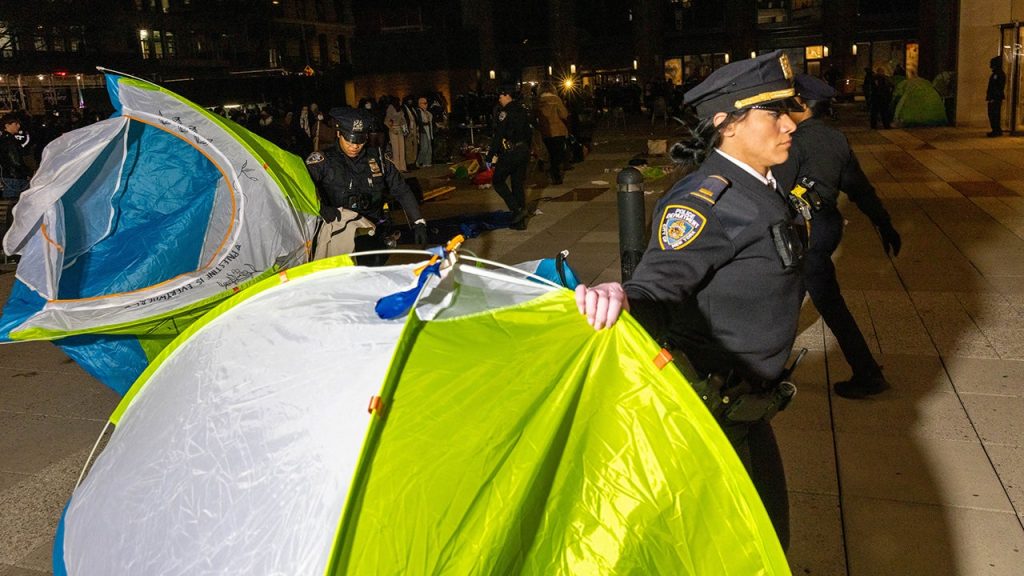City officials are questioning the funding sources behind anti-Israel protests at Columbia University and New York University that are filled with antisemitism. There are concerns about overseas assistance due to the organization and recent training sessions for students on specific talking points aligned with Hamas and Hezbollah. While there is no concrete evidence to prove this foreign involvement, the use of identical tents, timing of protests, and shared language between protesters and foreign actors suggest coordination that may be fueled by external support.
At Columbia University, several students were suspended over an event called “Resistance 101” that featured speakers with links to terrorist organizations like the Popular Front for the Liberation of Palestine. The speakers reportedly expressed support for extreme anti-Israel activities and emphasized the importance of resistance in Gaza. The House Committee on Education and the Workforce highlighted the ties between the speakers and terrorist groups, indicating a potential threat to U.S. college campuses. The lack of transparency in funding and organization of groups like Students for Justice in Palestine raises concerns about their operations.
In the wake of the anti-Israel demonstrations, concerns were raised about the similarities in tents used at different protests, leading to suspicions about foreign involvement. New York City Mayor Eric Adams and NYPD officials have pointed out the organized nature of the protests and the potential presence of outside agitators. Amidst rising tensions, city officials called for more investigation into the situation, highlighting the need for federal intervention given the international scope of the issue. The fear of a tragic event being the catalyst for further investigations, similar to the Holy Land Foundation case post-9/11, underscores the urgency of addressing potential threats to public safety.
House Speaker Mike Johnson visited Columbia University to show support for Jewish students and express concerns about the escalating demonstrations. The possibility of deploying the National Guard to maintain order was mentioned as a response to threats and intimidation faced by students. The need for collaboration between law enforcement, city officials, and university leadership to address the unrest was emphasized. Rep. Anthony D’Esposito condemned terrorist sympathizers among the protesters and called for a united effort to combat extremism and protect student safety on campus.
The involvement of overseas entities in fueling anti-Israel protests on campus raises significant concerns about national security and public safety. The potential impact of foreign influence on student movements and the risks associated with extremist ideologies being propagated in academic settings highlight the need for comprehensive investigations and interventions. City officials, law enforcement agencies, and federal authorities must work together to address the root causes of these protests and prevent any potential threats from escalating. Collaborative efforts are essential to ensure the safety and well-being of students and uphold the values of academic freedom and diversity in educational institutions.


